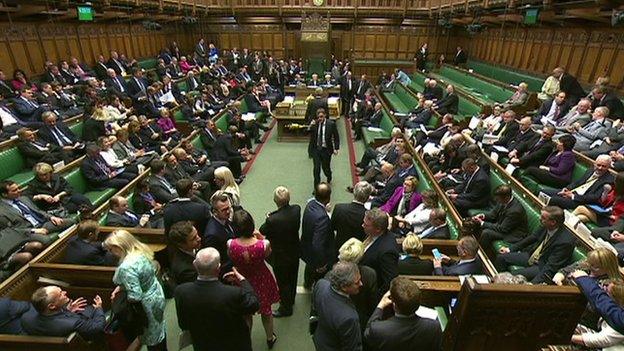EU referendum: Commons defeat makes vote 'fairer'
- Published
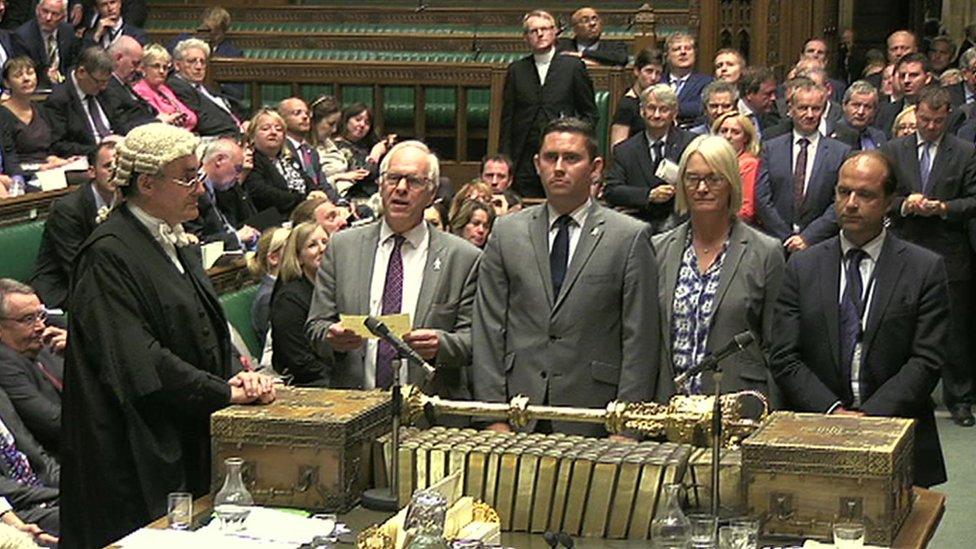
The UK is "a step closer to a fairer referendum" on the EU following the Tory government's first Commons defeat, Eurosceptic MP Bernard Jenkin says.
Ministers were outvoted on plans to amend so-called "purdah" rules which limit government activity in the build-up to the in/out referendum.
They also agreed to a rebel Conservative amendment of a four-month notice period preventing a snap poll.
It came as the bill paving the way for the referendum cleared the Commons.
The EU Referendum Bill was backed by 316 votes to 53, meaning it will pass to the House of Lords for further scrutiny.
But this came after Conservative rebels and opposition from Labour and the SNP helped inflict a government defeat over the campaigning rules, by 312 to 285.

What is purdah?
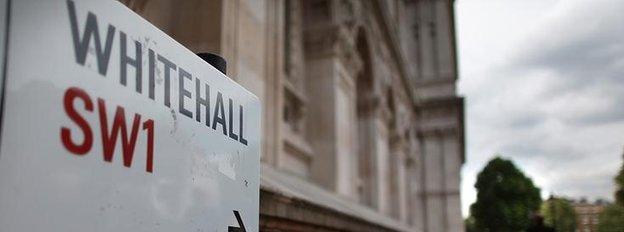
Purdah is a long standing convention whereby governments refrain from making any major announcements in the run-up to general elections or other polls to avoid influencing their outcome.
The existing rules were set out in legislation passed in 2000. They prevent ministers, departments and local authorities from publishing any "promotional material" arguing for or against any particular outcome or referring to any of the issues involved in the referendum.
The rules, which apply to the 28 days up to polling day, do not preclude ministers from issuing press notices or responding to specific requests for information from members of the public.

Speaking on BBC Radio 4's Today programme, Mr Jenkin, who chairs the Commons Public Administration Committee, said he believed the Conservative Party should be neutral in the EU referendum, adding there was "little doubt" that most party members would vote to leave.
Referring to the original purdah proposals, he said it was "outrageous for the government to try to stack the deck like this".
He added: "We have got a step closer to a fairer referendum, and I think that's the kind of thing the British people want."
Concessions
The purdah vote was a rejection of concessions made by David Cameron in response to Eurosceptic concerns the government could use the "Whitehall machine" to promote continued EU membership.
Ministers had agreed to restore purdah restrictions for the referendum but with certain exceptions to allow ministers and others to conduct day-to-day business with the EU during the campaign period.
During the debate, Europe Minister David Lidington said the package of proposals put forward by the government was "balanced and fair".
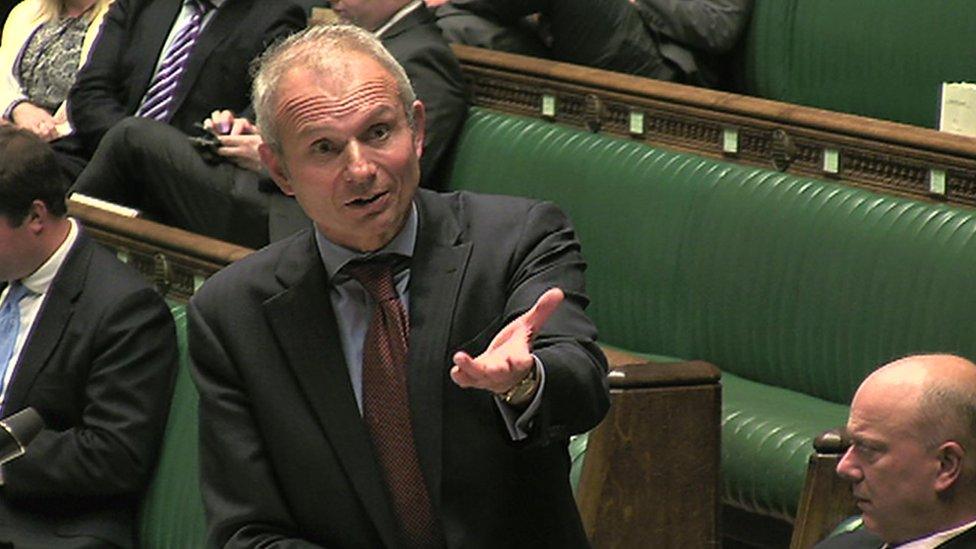
The minister insisted the changes being proposed by the government were fair
But he was accused by Tory Eurosceptic MP Sir Edward Leigh of offering "legalistic claptrap" in a bid to avoid a Commons defeat. Sir Edward said the process must be "considered to be fair" and argued for Labour's amendment - which reinstated the full purdah rules in the bill - to be accepted.
Analysis of the vote, which saw the government defeated by a majority of 27, showed the 37 Conservative rebels included five former Cabinet ministers: Liam Fox, John Redwood, Owen Paterson, Cheryl Gillan, and David Jones, and the chairman of the influential backbench 1922 Committee of Tory MPs, Graham Brady.
Commenting for Labour after the vote, shadow foreign secretary Hilary Benn said the government had tried to play "fast and loose" with the arrangements for the referendum.
"This is a humiliating defeat for David Cameron, with members from all sides of the House supporting Labour's approach to purdah, which ensures fairness in the conduct of the referendum campaign while permitting normal government business to take place," Mr Benn said.
"The government should never have rushed through its flawed plans to play fast and loose with the rules on the referendum," he added.
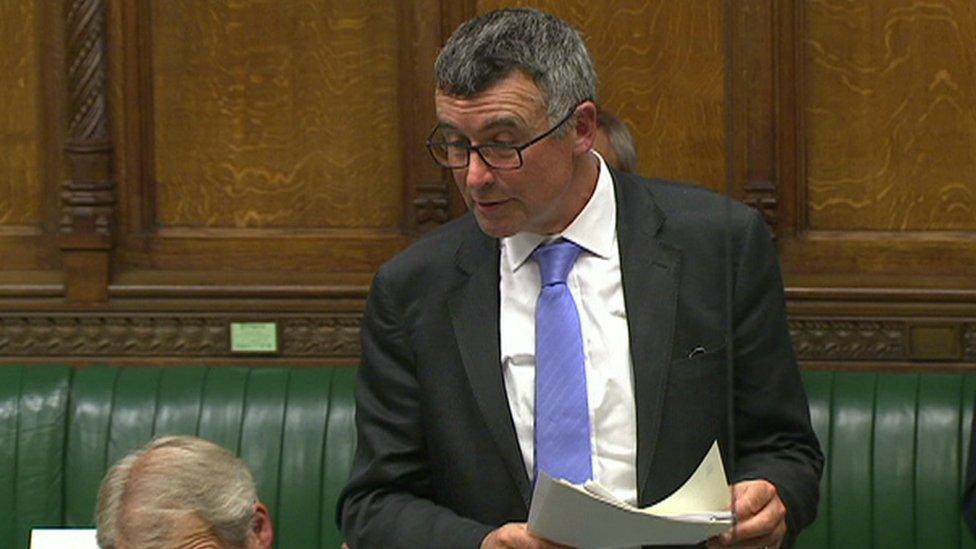
Bernard Jenkin was among the Conservative rebels to argue for stricter purdah rules to be applied to the EU referendum campaign
Earlier in the debate, the government conceded on Mr Jenkin's amendment which would prevent a snap poll from being held by requiring four months' notice of how the final purdah rules would work.
Mr Lidington said that while there were "drawbacks" to having a firm time limit he would accept the amendment "in the interests of bridge-building".
No date has yet been set for the referendum on Britain's membership of the European Union but David Cameron has promised to hold the vote by the end of 2017.
- Published1 September 2015
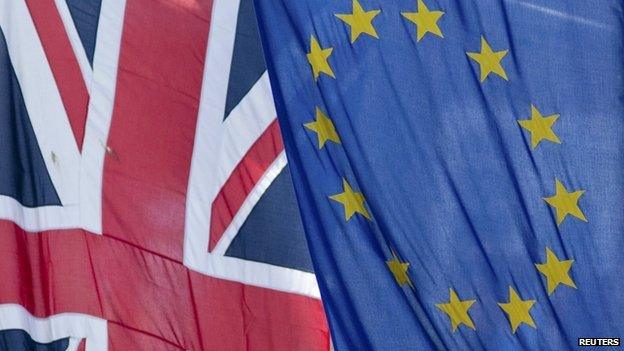
- Published1 September 2015
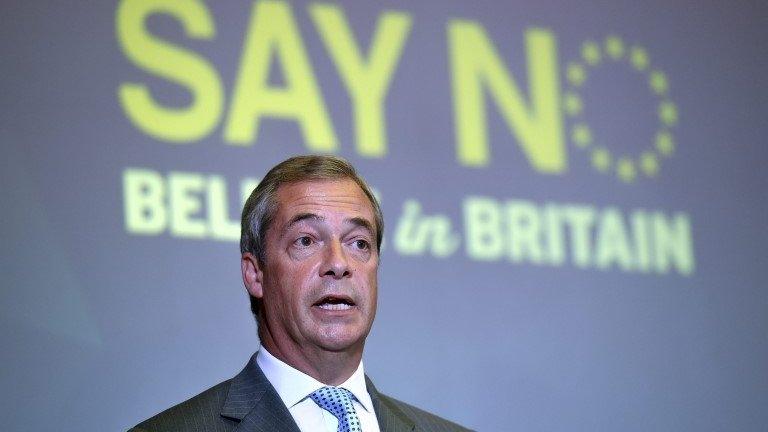
- Published16 June 2015
